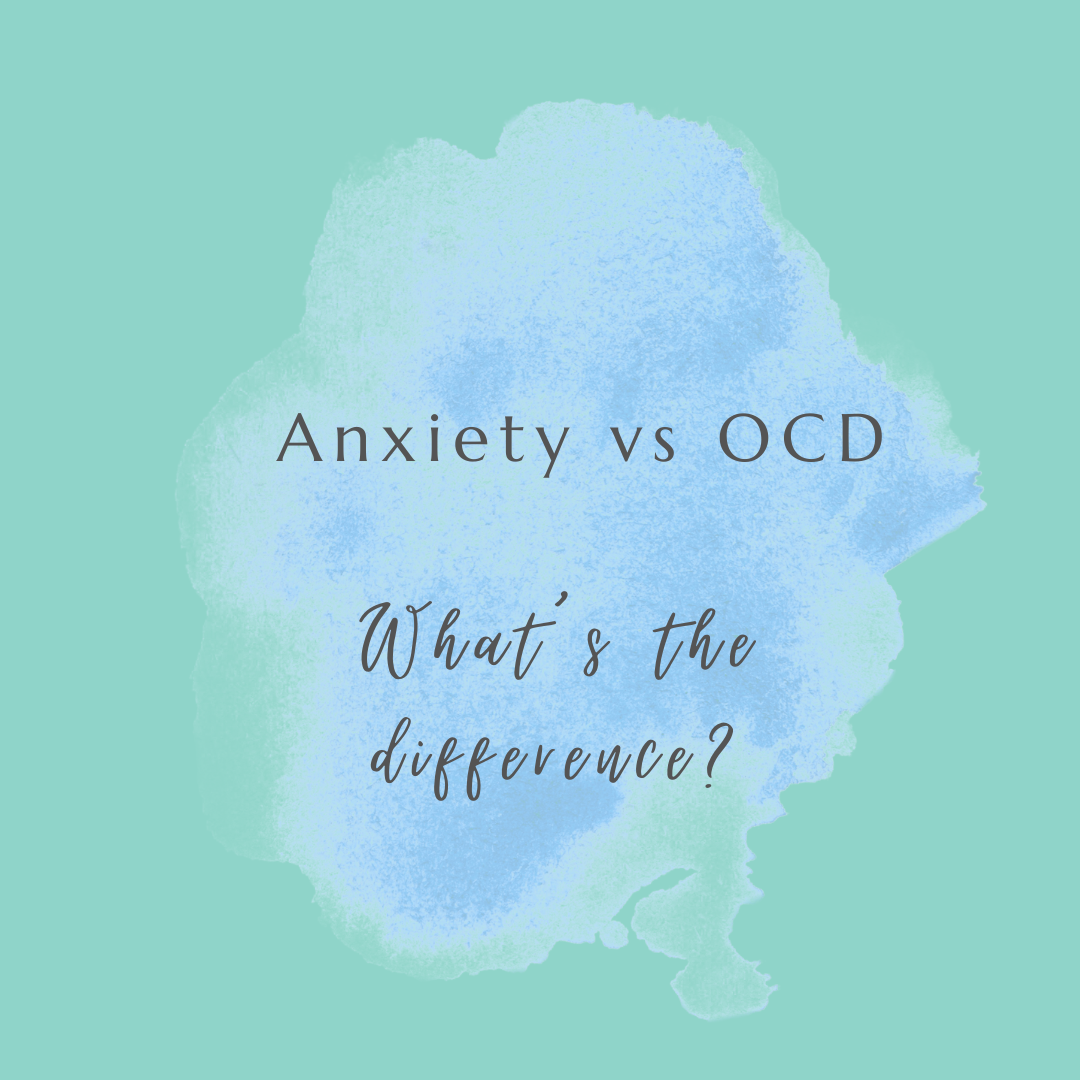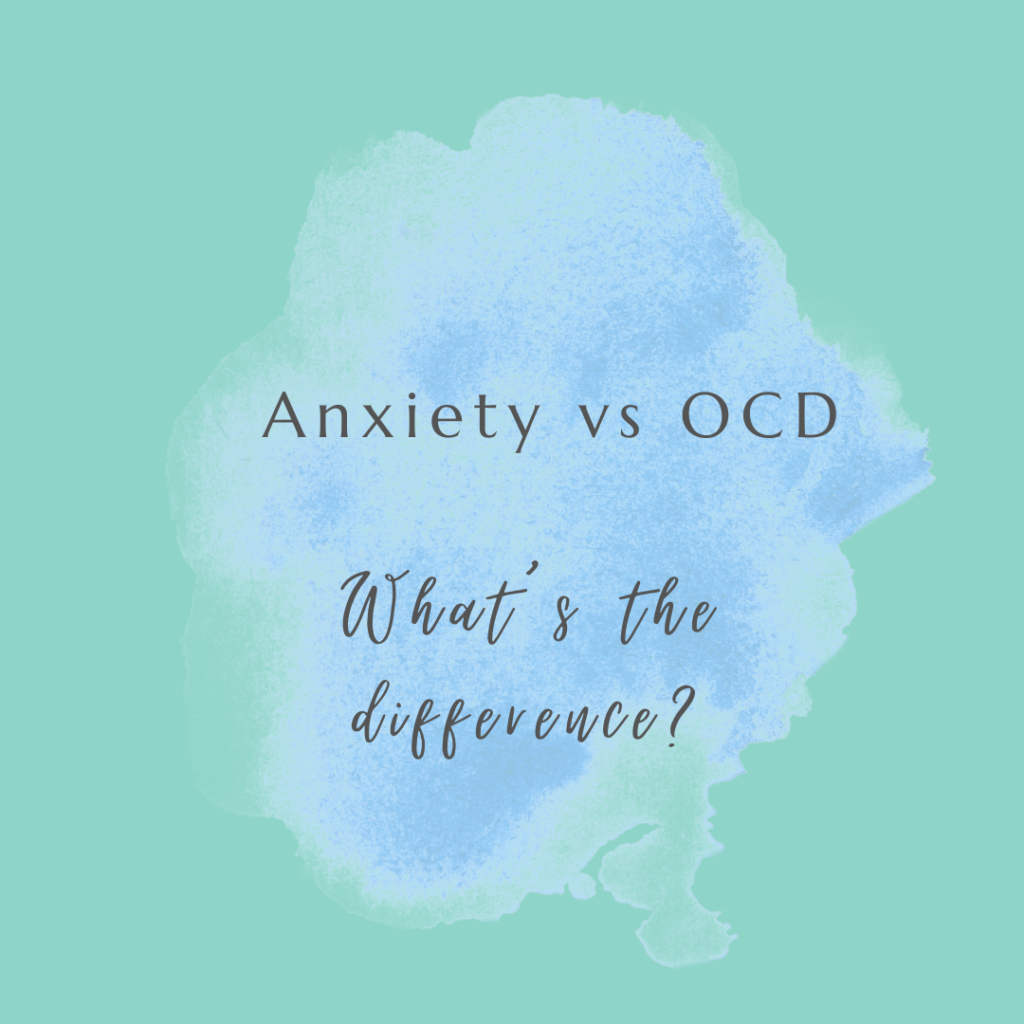

My passion lies in guiding individuals like you through transformative life coaching. With a heart full of empathy and a wealth of professional experience, I’ve dedicated my life to helping people discover their true potential and lead lives brimming with purpose and joy.

Anxiety and OCD share similar symptoms which can leave a person wondering, “Do I have anxiety or am I struggling with OCD?
In today’s blog post, I wanted to spend some time highlighting how different and yet similar they are by exploring: Anxiety vs OCD: What’s the difference?
According to the DSM5 (the diagnostic and statistical manual or mental health) Anxiety is described as excessive worry and apprehension that persists for 6 months and interfere in functioning life areas such as school, work etc.
OCD (Obsessive compulsive Disorder) according to the DSM is characterized by recurrent and persistent unwanted thoughts that cause emotional distress. In order to be diagnosed with OCD, one MUST experience Obsession (ruminating/intrusive/unwanted thoughts) and compulsions (actions that ease the anxiety).
When a person experiences generalized anxiety, there typically isn’t the presence of compulsions, but ruminating thoughts will more than likely be present.
Both anxiety and OCD have subtypes. An example of a subtype of OCD is ROCD which is short for Relationship OCD; a subtype of OCD where a person struggles with unwanted, intrusive thoughts of how much or whether they love their partner and experiences compulsions such as engaging in checking behavior to prove that they really do love their partner.
HOCD, which is short for homosexual OCD where a person may question their sexuality, which can lead to emotional distress.
Subtypes of Anxiety include Social Anxiety, Agoraphobia (fear of small spaces) etc.

What do the symptom look like: One way to tell the difference between Anxiety vs OCD is by the symptoms you experience.
Symptoms of anxiety include:
Symptoms of OCD include:
Obsessions:
Compulsions:
Why is it important to know the difference between Anxiety vs OCD?
Knowing the difference between Anxiety vs OCD can help you increase awareness of what you are experiencing so you can better put a name it. It also allows you to receive care that is accurately tailored to your needs. Just like you wouldn’t want to be treated for your liver, if it’s your kidney that needs care. The same principle applies here. Mental Health treatment is not a one size fits all approach and understanding diagnosis can guide treatment techniques .
Are you struggling with Anxiety or OCD?
Psychotherapy allows you to gain insights into your thoughts, emotions, as they arise, to allow you to better navigate distress. Whether you are struggling with anxiety or OCD, developing coping strategies that allows you to identify symptoms, coping skills to provide relief can be helpful for symptom management. Knowing how to effectively manage your OCD or anxiety symptoms means you can get back to a healthy, productive lifestyle. Reach out here for a free consultation to see if we might be a good fit.

Looking for a Black female therapist in Dallas? Reach out for a free 15 minute consultation to see if we are a good fit.
HOURS: Monday-Thursday 11am-6pm
Saturday 12-2pm
Email: jewel@cornerstonementalhealth.com Phone: 682-999-8119